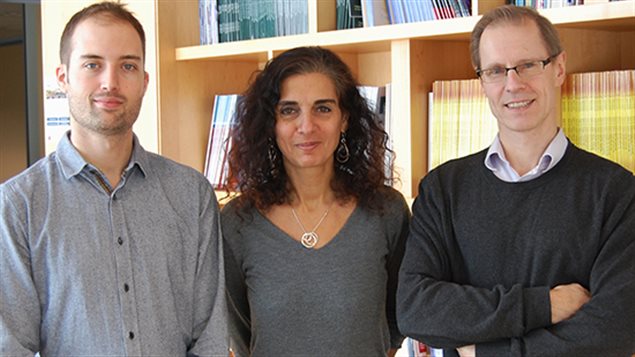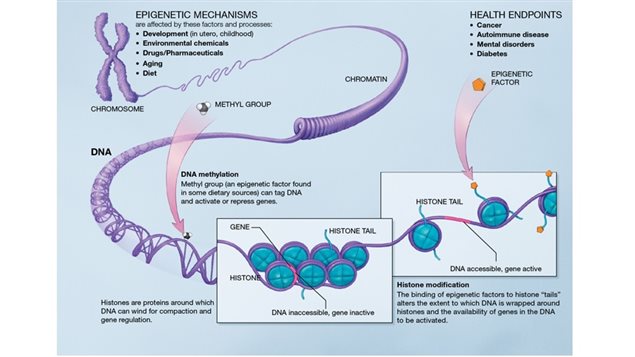It’s technically complicated but a research team doing a secondary examination of previous research discovered an important factor in cancer development.
Cancer research is often focused on genetic mutation, but this new research looked instead at the process affecting how genes are expressed, a science known as epigenomics
Jacek Majewski (PhD) is an associate professor in the Department of Human Genetics at McGill University, and the Research Institute of the McGill University Health Centre (RI-MUHC).\
ListenThe McGill scientists were conducting research in epigenetics, which examines how organisms are changed by modification of gene expression, rather than changes in the genetic code itself.

Virtually all cells in the body have the same DNA. It has only been in recent years that differences in cell development into immune cells, fat cells, neurons, skin cells etc, were found to be governed by epigenetics, that is, what triggers the activity/development in each cell.
Quoted in McGill News, team member and one of the principle authors of the research, Dr. Nada Jabado, compares the genome to notes of music and our epigenetics to a musical score. “Using the same scale, you can create many different melodies. Like a sheet of music that dictates which notes to play and in which order, epigenetics organizes and provides meaning to our genes. If an error makes its way into the score, there’s going to be a problem with the music.”
The researchers findings were published in the science journal Nature Genetics under the title, “Impaired H3K36 methylation defines a subset of head and neck squamous cell carcinomas”.
Certain brain cancers found in children were known to be caused by something that changed normal cell development into a cancerous cell pathway. As mentioned, epigenetic changes control cell development, and epigenetic alterations and mutations in histones in turn cause undesired changes in cell development.
It was thought that adult cancers, those known to be the result of environmental factors like alcohol and tobacco but what surprised the researchers was that they found the same epigenetic changes known in childhood brain cancers in adult throat cancers.
This leads to the hypothesis that such epigenetic alterations may be important in many other types of cancers.
They found that abnormalities in a particular histone, -H3- cause head and neck cancers in up to 15 percent of patients and that this particular mutated form is difficult to treat.
Because of that, patients with that form would be spared the toxic treatment of chemotherapy that won’t work in those cases.
Professor Majewski indicates that this discovery should be another step forward in personalized treatment whereby genetic testing of each patient’s tumour will lead toward more targeted, effective treatments with fewer of the current negative and stressful side-effects.
Research funding comes from Genome Canada and Genome Quebec, and the US National Institutes of Health
Additional information- sources







For reasons beyond our control, and for an undetermined period of time, our comment section is now closed. However, our social networks remain open to your contributions.